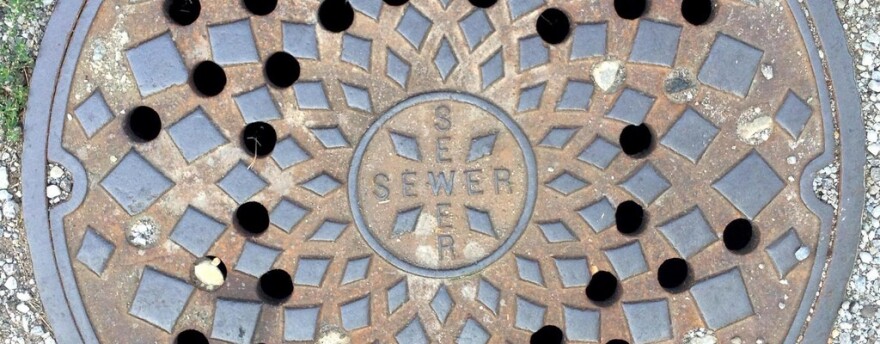Louisville’s Metropolitan Sewer District board Monday voted unanimously to approve a 6.9 percent rate increase — the largest the body can levy without Metro Council approval. The board previously approved a 20 percent increase, but the measure failed to get any support from council members.
MSD staff proposed the 20 percent rate increaselast month, after completing a 20-year facility plan that laid out the work that needs to be done to protect the city from hazards like flooding. Because the agency is nearing the upper limits on the amount of money it can borrow through bonds, the staff argued that a substantial rate increase was necessary.
But the request was met by a skeptical Metro Council. Council members criticized the agency for not educating them or the public on the reasons behind the rate increase and ultimately declined to sponsor any related measures.
Now, the MSD Board has agreed to settle for a 6.9 percent rate increase, which will raise the bills of the average ratepayer by $3.38.
The smaller rate increase means that MSD will have to revise its capital budget to the tune of $32 million. Executive Director Tony Parrott said that will defer — or maybe permanently scuttle — some critical infrastructure upgrades, and most of the capital spending will go to the city’s federal consent decree to reduce sewer overflows into the Ohio River.
“There will be less work done on the stormwater side, there will be less work done on the Ohio River flood protection side,” Parrott said. “Our ability to really to just focus on the mandated consent decree work is going to be the priority under the 6.9 percent scenario.”
This, he warned, could snowball and end up costing the agency more money in the long run.
MSD Operations Director Brian Bingham said the 2015 lightning strike at the Morris Forman Treatment Plant — the event that caused about $10 million in damage and sent over two billion gallons of untreated or partially treated sewage into the Ohio River — could have been avoided if there had been money to make capital improvements to the facility years ago.
“We had initially planned on doing this backup generator 10 years ago, and we were just being able to get it into the process because of those rate constraints that we had,” Bingham said. “So, had we been able to get to these things earlier, we would have been able to save that pain and that effort and the same kinds of things are the types of projects that are in the list that was intended to be funded by this larger rate increase.”
In previous years, MSD’s budget has included about $2 million for emergency repairs, Parrott said. In fiscal year 2016, it was about $6 million.
The MSD board reluctantly approved the smaller rate increase at its regular meeting Monday, with many board members voicing displeasure.
“MSD is damned if we do and damned if we don’t,” said board member Joyce Horton Mott, saying the agency would be blamed whether it raised rates, or whether a catastrophic flooding event happens because the agency can’t raise rates and repair infrastructure.
"The proposed rate increase of 6.9 percent and a five-year capital spending improvement program to follow is unacceptable due to the high risk and danger to public safety and health,” said board member John Phelps in prepared remarks before the vote. Phelps initially said he would vote against the smaller 6.9 percent increase, but eventually voted in favor with the rest of the board members with a promise to revisit the larger increase next year.
Besides the $32 million in cuts to MSD’s planned capital improvements that will come this year with the smaller rate increase, Parrott warned that the long-term effects will be more severe. The agency is looking at as much as a $70 million cut to the Fiscal Year 2018 capital budget, compared to a scenario where sewer rates were raised by 20 percent.
Both MSD staff and the board said they would immediately begin educating the public and elected officials about the need for another significant rate increase in next year’s budget, with the hope that this time around they can get both community and political buy-in on the proposal.




